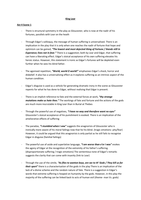Lecture notes
King lear-Act 4
- Institution
- CCEA
These are notes for Act 4 of King Lear. It provides a comprehensive linguistic analysis of all scenes in Act 4 of King Lear. It also emphasises the way in which King Lear relates to the traditional rules of tragedy
[Show more]



